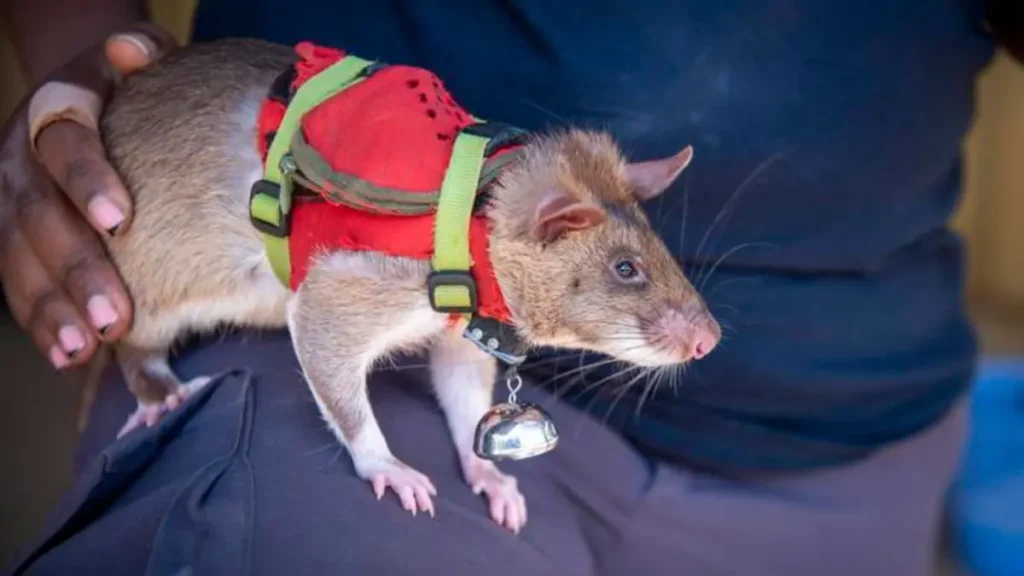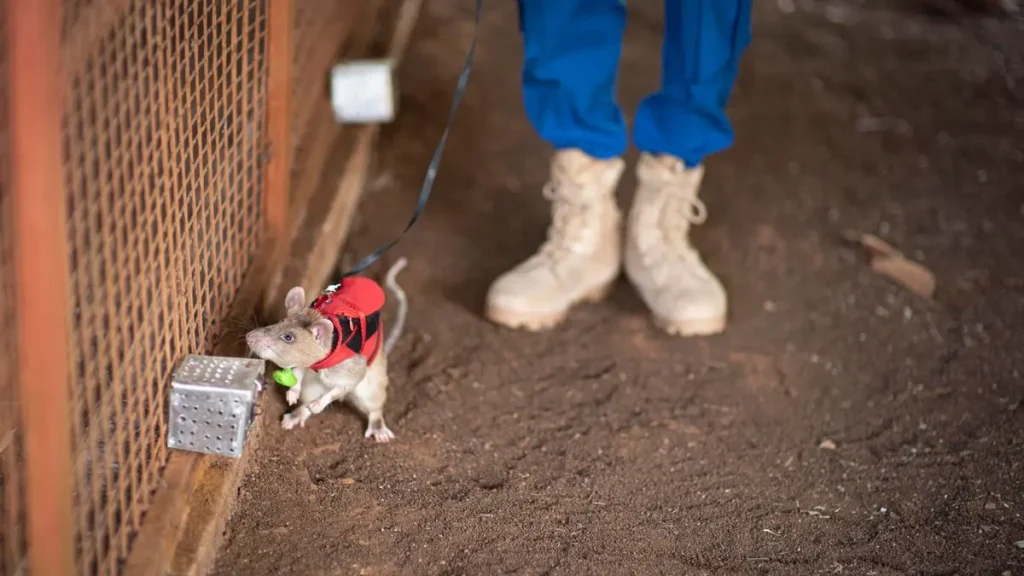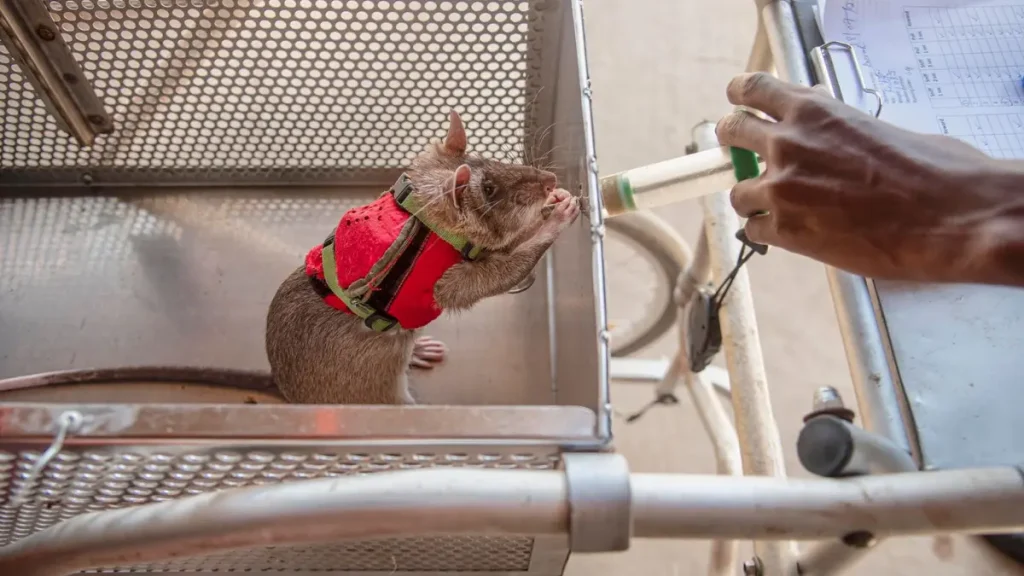In a surprising development, researchers have unveiled a new weapon against the illegal wildlife trade: African giant pouched rats.
Known for their keen olfactory abilities, these rats are being trained to detect items like pangolin scales, elephant ivory, and rhino horn, potentially putting a dent in global wildlife smuggling operations.

The study, spearheaded by the non-profit organization APOPO in Tanzania, involved extensive training of these rodents, each named in homage to conservation icons such as Irwin, Attenborough, and Fossey.
Initially, the rats underwent “indication training,” where they were taught to recognize and stay focused on target scents.
Once they correctly identified a scent by holding their noses to it for a few seconds, they received a flavored pellet as a reward.

In the subsequent “discrimination training” phase, the rats were introduced to a myriad of non-target odors including coffee, washing powder, and electric cables—common materials used by traffickers to obscure illegal goods.
This stage was crucial in teaching the rats to ignore irrelevant scents and zero in on the wildlife products they are meant to detect.
An exceptional quality of these rodents is their ability to retain scent memory over time.

During testing, they successfully identified scents they hadn’t encountered for months, showcasing a scent memory rivaling that of trained dogs.
Dr. Isabelle Szott from the Okeanos Foundation, a co-author of the study, highlighted the performance of these rats in complex real-world scenarios.
When exposed to wildlife scents masked by other odors, such as ivory mixed with washing powder, the rats were still able to make accurate detections.
One of the most exciting innovations involves custom vests equipped with a microswitch.
When a rat pulls on a small ball attached to the vest, it emits a beep, signaling the detection of a target scent.
The team is also exploring the potential for backpacks loaded with cameras and remote communication features, which could be revolutionary for operations in ports and other challenging environments.
Previously, APOPO has successfully trained rats to detect landmines and the pathogen responsible for tuberculosis.
With this new venture, they are considering expanding the rats’ roles to detect other illegal activities such as drug and arms trafficking.
Their diminutive size allows these rats to maneuver through cramped spaces like packed cargo containers, making them an effective and cost-efficient tool for port screening.
While the controlled study environment does not wholly replicate real-life conditions, the research marks an important step towards integrating these rodents into anti-trafficking efforts on a larger scale.
As wildlife trading is often linked with human, drug, and arms smuggling, the deployment of these rat detectives could play a critical role in disrupting broader criminal networks.
Dr. Kate Webb, an assistant professor at Duke University and study co-author, emphasized that combating wildlife trafficking can aid in the global fight against networks that exploit both humans and nature.
The findings from this study, published in the journal Frontiers in Conservation Science, suggest a promising future in which giant rats are not only counted among our most valuable conservation allies but are at the frontline of disrupting illicit trade practices.
